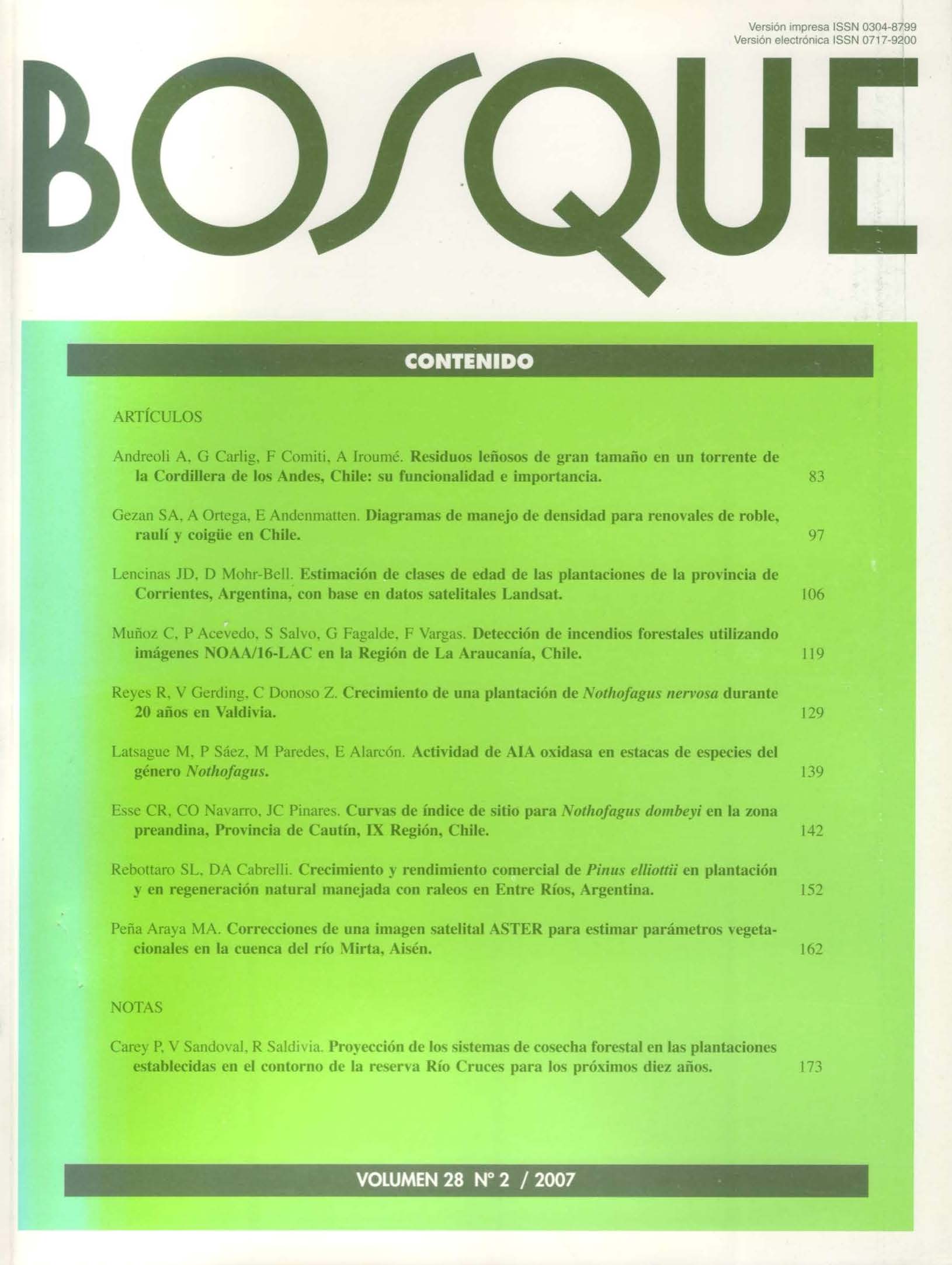Main Article Content
Aug 31, 2007
Abstract
This work evaluated the effect of different correction procedures of an ASTER satellite image on the estimation of Vegetation Cover Fraction (VCF) and Normalized Difference Vegetation Index (NDVI) on the Mirta river basin, located in Cisnes county, Aisén Region, Chile. Specifically, atmospheric, topographic and sub-pixel rectification procedures were applied on the image. That allowed to estimate both vegetational parameters on uncorrected data and on those subjected to different correction levels, and thus to establish frequency and agreement comparisons among their classes. After subjecting the image to the mentioned corrections, estimation of VCF and NDVI yielded values markedly higher than those estimated from the raw image. Classes of the VCF image that incorporated a sub-pixel rectification exhibited the lowest agreement in relation to their equivalents estimated from raw image, while NDVI estimated from the atmospherically rectified image presented a larger proportion of values near to the greenness saturation, which were not rendered when this parameter was estimated from the raw image data. The relation of VCF and NDVI with the main vegetation covers of the basin allowed to observe that both parameters exhibit their highest values on dense forest formations, while their lowest values are present on scrub formations or forest formations mixed with young trees.


